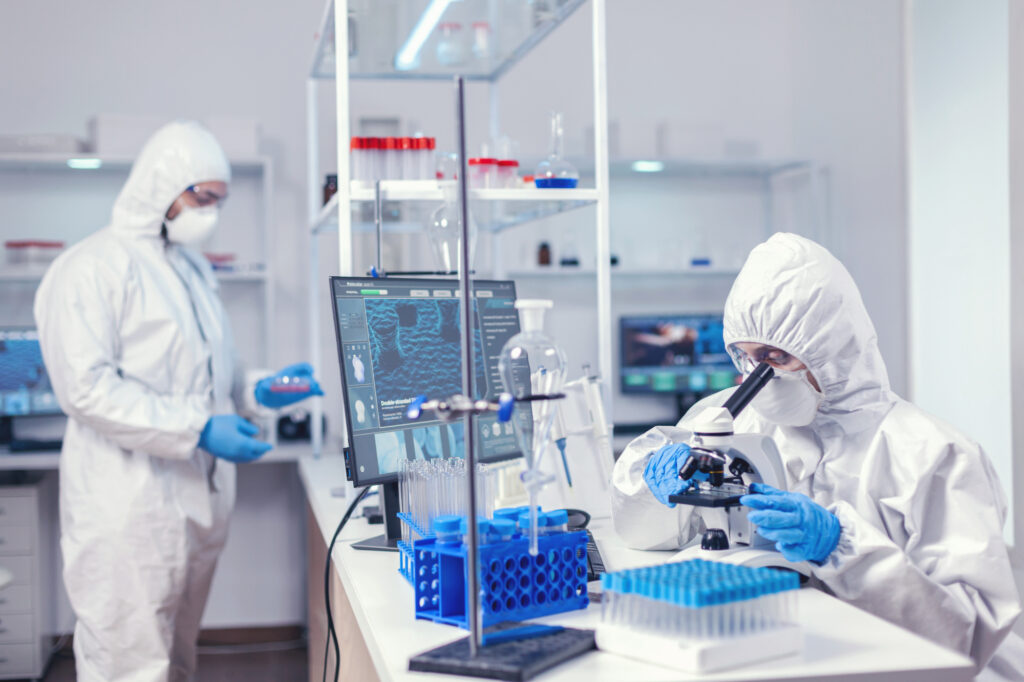Everything You Need to Know About Laboratory Sample Collection Kits

Laboratory sample collection kits are an essential tool for diagnostic testing, research, and medical investigations. These kits ensure the safe, accurate, and efficient collection of specimens, enabling healthcare providers and researchers to make informed decisions.
Whether you’re in the medical field, research labs, or even industrial testing, choosing the right laboratory sample collection kit is crucial. This guide highlights key aspects, benefits, and things to consider when selecting these kits.
What Are Laboratory Sample Collection Kits?
Laboratory sample collection kits are pre-packaged sets designed to collect, transport, and store various types of specimens like blood, urine, saliva, or tissue. They often include:
- Collection containers (tubes, swabs, or cups)
- Labels for specimen identification
- Transport bags
- Preservatives or stabilizers (if necessary)
Types of Sample Collection Kits
1. Blood Collection Kits
Used in hospitals and clinics, these kits include needles, vacuum tubes, and anticoagulants to prevent clotting.
Explore Sample Collection Kits on Mediscala for affordable options.
2. Swab Kits
Ideal for collecting samples for DNA, viral, or bacterial analysis, swab kits are widely used in molecular diagnostics.
3. Urine Sample Kits
These kits include sterilized containers and preservatives to keep samples fresh during transport.
4. Tissue Collection Kits
Used in biopsies, these kits help store and transport tissue samples without contamination.
Advantages of Laboratory Sample Collection Kits
- Standardized Collection
Pre-packaged kits ensure uniformity, reducing errors during specimen collection. - Enhanced Safety
Kits include sterilized components, reducing the risk of contamination and ensuring biosafety compliance. - Improved Accuracy
Proper collection tools prevent sample degradation, ensuring accurate test results. - Convenience
Everything needed for collection and transport is included, saving time and effort.
How to Choose the Right Kit
1. Consider the Sample Type
Different specimens require specific kits. Blood samples, for instance, need anticoagulants, while DNA tests may require specialized swabs.
2. Compliance with Regulations
Ensure the kits comply with local and international biosafety and transportation regulations.
3. Quality Assurance
Opt for kits from trusted manufacturers to ensure reliability and accuracy. Check out Mediscala’s trusted listings for top-tier options.
4. Ease of Use
User-friendly designs can make the collection process seamless for healthcare providers and patients alike.
Mediscala: Your Trusted Marketplace for Laboratory Supplies
Mediscala offers an extensive range of laboratory sample collection kits tailored to meet diverse medical and research needs. From blood collection systems to advanced swab kits, you can find premium-quality, affordable options on our platform.
Browse our Laboratory Sample Kits and discover solutions that match your specific requirements.
Overview of Sample Collection Kits
All great science starts with sample collection. The quality of the sample collected is critical to the accuracy and reliability of research and diagnostic results. Our innovative sample collection reagents and devices have been used for a wide range of applications from collecting biological samples from space with NASA to diagnostic testing and sequencing through the COVID-19 pandemic. Start your great science today by upgrading the quality and preservation of your samples with our sample collection kits and reagents.
What is a sample collection kit?
A sample collection kit is a package or container that includes the necessary tools and materials for safely and effectively collecting, transporting, and preserving samples for analysis, testing, or research purposes. These kits are designed to ensure that the collected specimens remain uncontaminated and in suitable condition until they reach the laboratory or testing facility.
The type of sample collection kit can vary depending on the nature of the sample being collected and the intended analysis. Some common types of specimen collection kits include those intended for blood, tissue, urine, saliva, swabs, stool, etc.
Each sample collection kit is tailored to the specific requirements of the type of sample being collected and the tests or analyses that will be performed. These kits play a crucial role in ensuring the accuracy and reliability of laboratory results by maintaining the integrity of the collected specimens throughout the collection and transportation process.
Why are sample collection kits important?
Sample collection is a crucial step in any scientific research or diagnostic testing. The accuracy and reliability of the results depend on the quality of the samples collected. Therefore, it is important to use appropriate sample collection methods and tools that ensure the preservation of the sample’s integrity. This is where innovative sample collection reagents and devices come into play.
The significance of proper sample collection has been recognized by the scientific community, and there is substantial investment in developing various methods of collecting biological samples. The methods used for sample collection depend on the type of sample being collected and the research objectives. Some common sample collection methods include swabs, blood draws, urine collections, saliva collections, and tissue biopsies. In each case, there is a need to ensure that the sample collected is not contaminated, that the sample’s integrity is maintained, and that the sample is preserved appropriately to avoid bias that can derive from the sample collection process.
The importance of sample collection quality is also highlighted in space research. In space, the collection and preservation of biological samples can be challenging due to the harsh environment. However, NASA has utilized innovative sample collection kits to collect biological samples in space from astronauts aboard the International Space Station. This has allowed for the analysis of the effects of space travel on the human body and provided valuable insights into space biology.
Innovative sample collection kits and devices have been developed to meet a wide range of requirements determined by the application. For example, some swab collection devices have been designed to ensure the collection of high-quality DNA samples for sequencing. Others have been created to collect viral samples for diagnostic testing, such as the ones used during the COVID-19 pandemic.
Moreover, in the case of diagnostic testing, the use of innovative sample collection reagents and devices has become even more critical due to the COVID-19 pandemic. The collection of high-quality samples is essential for accurate and reliable diagnostic results. Therefore, the development of innovative sample collection reagents and devices has played a vital role in combating the pandemic. These devices and reagents are designed to collect nasal and throat swabs, which are used for diagnostic testing.
Who needs sample collection kits?
Sample collection kits are needed by various industries and fields for collecting and preserving samples for analysis, testing, and research purposes. Some of the entities and sectors that require sample collection kits include:
- Medical and Healthcare Institutions: Hospitals, clinics, and laboratories use sample collection kits for collecting blood, urine, saliva, and other bodily fluids for diagnostic and research purposes.
- Research Organizations: Scientific researchers and academic institutions use sample collection kits to gather biological, environmental, and other types of samples for studies and experiments.
- Biotechnology Companies: Companies involved in biotechnology and pharmaceuticals require sample collection kits for research and development of new drugs, therapies, and medical products.
- Water and Air Quality Monitoring: Environmental agencies and organizations monitor water and air quality using sample collection kits to assess pollution levels and potential health risks.
- Food Safety and Agriculture: Agricultural and food safety organizations collect samples from crops, soil, water, and food products to ensure quality, safety, and compliance with regulations.
- Forensic Laboratories: Law enforcement and forensic labs utilize sample collection kits for gathering evidence from crime scenes for analysis and investigation.
- Clinical Trials and Drug Development: Pharmaceutical companies and clinical trial organizations use sample collection kits to collect data and samples from participants during clinical trials.
- DNA Testing and Genetic Research: Genetic testing companies and research institutions use sample collection kits to collect DNA samples for ancestry testing, genealogy research, and genetic studies.
- Veterinary and Animal Health: Veterinarians and animal health researchers collect samples from animals for diagnostic and research purposes.
- Consumer Testing and Product Quality: Companies may use sample collection kits to assess the quality and safety of consumer products.
These are just a few examples of the diverse range of entities and sectors that require sample collection kits for various purposes. The specific requirements and types of samples collected can vary widely based on the intended use and industry.

